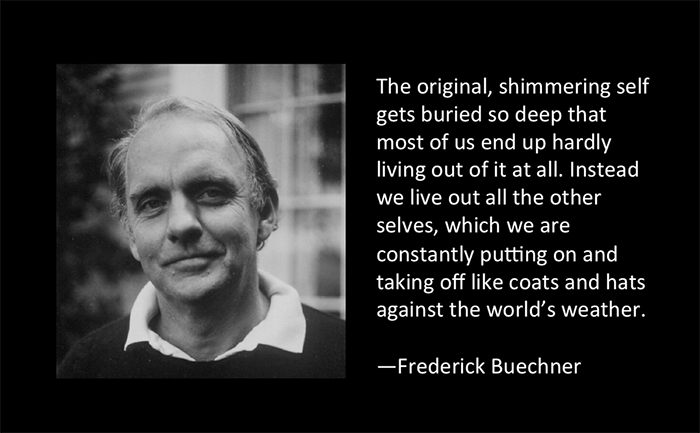Have We Lost Our Imagination?
I recently said, “I think compassion is a muscle and the church has atrophy. Time to build some muscle.”
Another muscle withering away due to neglect is imagination.
We have lost our imagination.
I think this happens because we are so easily tempted to mimic, copy, follow, and accept status quo as reasonable and good enough.
In the church it happens like this: we look to another church in some other part of the state or country that is considered successful because of one or more of the “B’s” – buildings, budgets, and butts-in-seats. We esteem these other churches as having or being something that we also should have or be. We podcast them. We fly over to them and scribble notes about everything we see and hear. We meet with their leaders to get their secret recipes. And then we bring it home to our state, city, neighborhood.
This whole thing reeks of a lack of imagination.
What ever happened to God speaking to us, giving us dreams and visions and creative ideas for our neighborhoods, cities, states? Where have all the artists gone? Where are the innovators?
(Note: innovation is not going somewhere else and importing all their best ideas. That’s more like making ourselves a golden calf because we haven’t heard from God for a few days)
I do believe in learning from others, being teachable, being inspired by the good work someone else is doing. But I still want to know: where are the artists? Where are the innovators? What happened to our imagination?
The world doesn’t need another Billy Graham, Mother Teresa, TD Jakes, Beth Moore… you can fill in the blank with your favorite Christian personality. Think about it. God didn’t create any of us to be “so-and-so part 2.” God is bigger than that. His creativity is far richer and more expansive than that. I remember reading a little book by John Mason in the ’90′s called: “You Were Born an Original. Don’t Die a Copy.” That’s some good advice right there.
More and more, I question the practice of multi-site churches streaming video to all their various campuses from the main church, from the main guy – a truly gifted communicator. What unsettles me about this practice is the underlying message it sends: “We don’t believe there’s anyone else uniquely gifted of God to speak to people in this neighborhood – so we’ll copy the audio and video signals of the anointed one, and give ‘em that.
It seems to lack imagination. And maybe for things like sandwiches or cappuccinos or chicken nuggets, replicating them all over God’s green earth is reasonable and good enough. But we’re not talking about fast food chains, we’re talking about the Kingdom of God.
For God’s sake, let’s exercise our imagination muscle.
I love what Erika Morrison says in her book Bandersnatch – an Invitation to Explore Your Unconventional Soul: “Mimicking the methods and movements of other people is one big smasher of your rare intellect and animation… an affront to the on-purpose of your design.”
As long as we are mimicking, new songs will not be written. Copying will not provide us with new solutions, answers, innovations. Where are the artists? Where are the innovators? Where has our imagination gone?
Over 20+ years of church leadership, I have done plenty of emulating. Lately, it has lost its appeal to me. I honestly can’t get myself to listen to a Christian podcast or listen to Christian radio or read the latest popular Christian book (and I most definitely cannot get myself to go to a Christian movie).
It all seems so… recycled.
I believe there is a better and more beautiful way. I don’t want to be impressed with a golden calf, a copy of a copy of a copy.
I want to exercise the muscle, weak as it may be, because I believe it will grow. And with the growth of imagination, ideas will come, songs will be written, solutions will be discovered, new words will be written, and dreams will be realized.
In closing, here are a few words from Brian Zahn’s poem The Advent of Imagination:
What’s a bit of ridicule if it comes with the liberation of imagination?
I for one am ready to be called an impractical, dreamy bleeding heart (or worse)
If it means we stop justifying the sacrifice of Abel on the altar of pragmatism…
(Or any other Ism.)
And so I ask you—
Test your imagination
Does the status quo (the existing state of affairs)
Have to remain an idol pledged allegiance to?
Has the way we’ve run the world since the (bloodstained) dawn of civilization
Worked out so very well we must remain wedded to it till death do us part?
What if the god Status Quo is guilty of spousal abuse?
Cannot we not sue for divorce
And marry another?
Behold, the bridegroom cometh! Go forth to meet him!




Thank you. I have often asked myself this while sitting through a live broadcast from another campus or (((shudder))) even worse the pre-recorded message why the talents and skills of the hard working and hard worshipping junior pastors weren’t just given the mic. Why have a team around if they can’t convey your message?
Imagination? There’s little room for imagination on a church staff. Imagination looks like insubordination to an insecure leader.
Oh wow, Vicki, this is super convicting (for me as the lead pastor) – how do I not squash, control, ignore, or devalue the creativity and imagination on my team? I’m critiquing myself and I’m not sure I like the score. One of the most challenging things in team-building is to create a culture where it is always safe to be yourself, to be honest. How honest can an employee be with their employer? I don’t have the answers. But this is stuff I wrestle with.
I do feel good about empowering my team to lead, to speak, to make decisions, to offer suggestions and ideas. The starfish and spider idea (from the book) has influenced me… if you cut a spider’s head off, she dies. If you cut one of a starfish’s leg, it grows a new one. Maybe organizations need more empowered leaders and fewer (or no) heads.
Thank you for your challenging words!